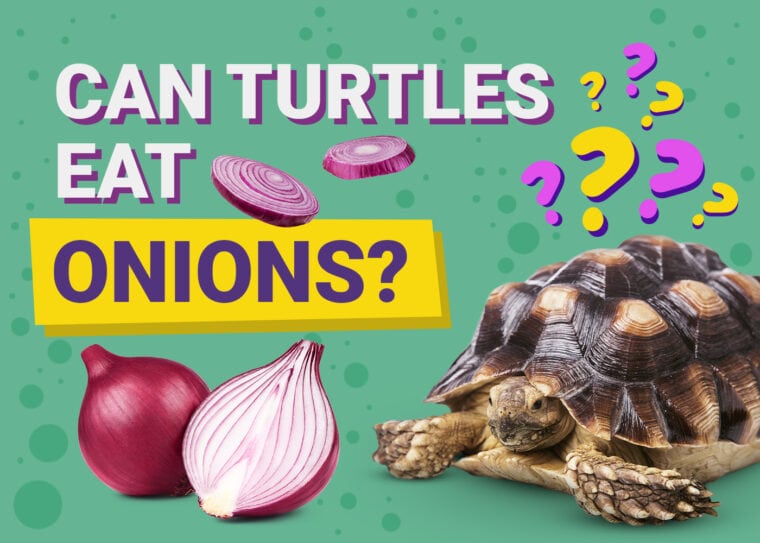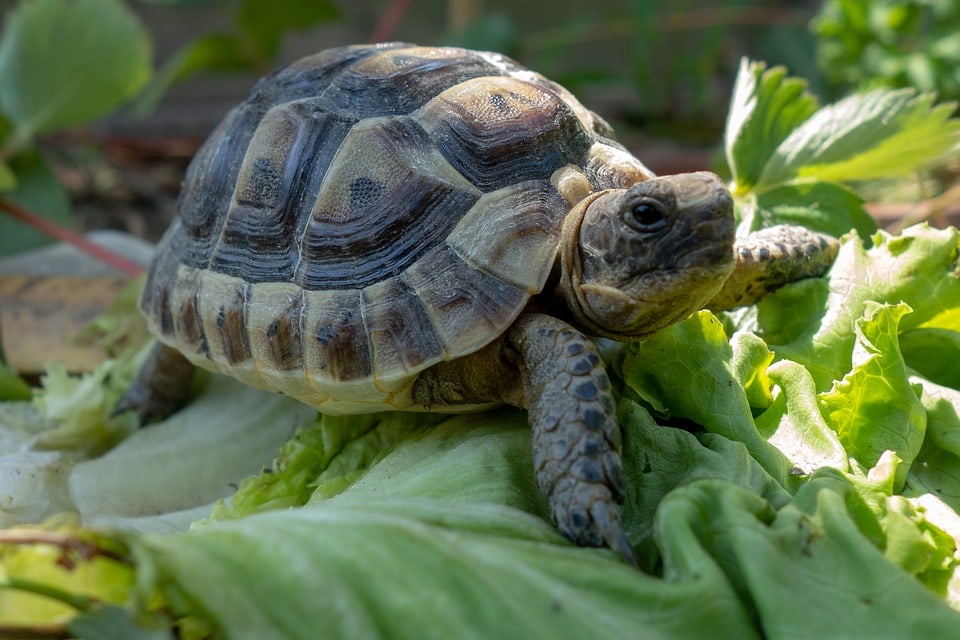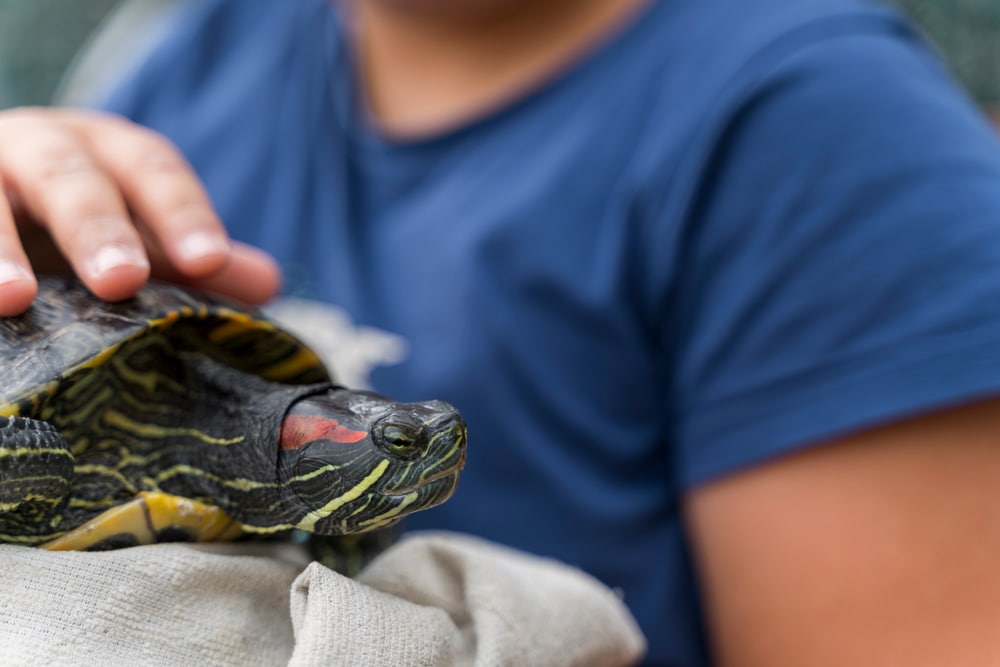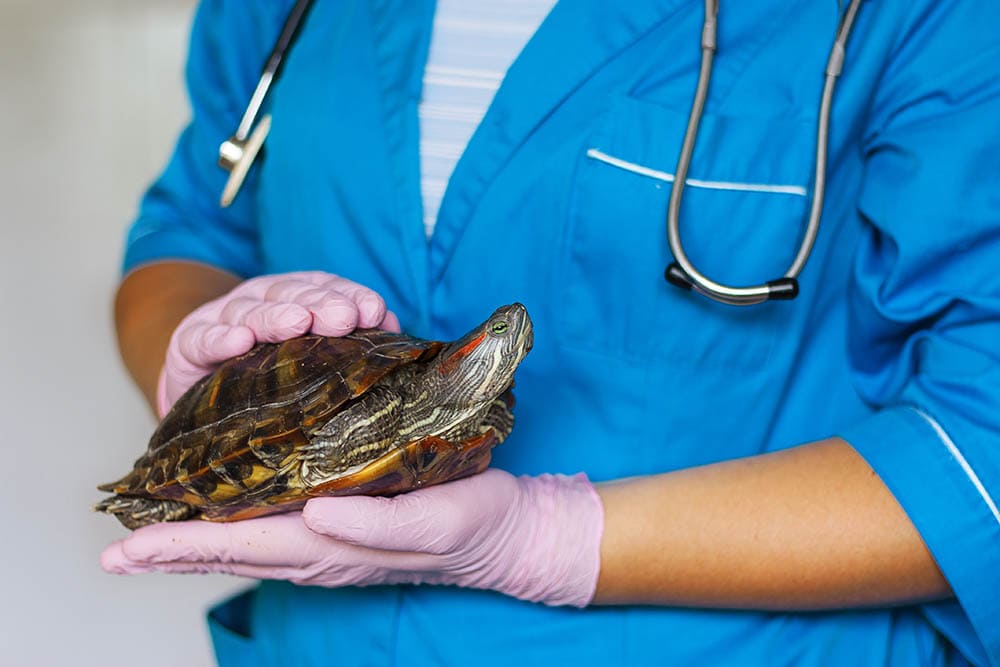
Turtles are one of the more popular reptile pets, and like with other pets, you may be tempted to sneak them a little food off your plate on occasion. You might figure that vegetables are a safe choice, and in many cases this is true, but it’s important to know which are safe before letting your shelled friend chow down. Leafy greens like spinach or cabbage are solid picks, but onions are not safe for your turtle to eat.
Why? Read on below to find out exactly why onions aren’t good for your turtle, what other foods are toxic to turtles, and some useful dietary tips for ensuring your turtle lives happy and healthy.
How Do Onions Affect Turtles?
Onions aren’t outright toxic to turtles, but they have some problematic elements that can be deadly if your turtle were to eat a lot of them. Onions contain a plethora of vitamins and minerals, like niacin, phosphorus, sulfur, folate, Vitamin C, and more. Unfortunately for our turtle friends, many of them are acidic. We humans can process acidic foods fine and derive nutrition from them, but it has detrimental effects on turtle bodies.
Too much sulfur and other acidic compounds from onions can directly harm your turtle’s red blood cells, causing anemia, and the high phosphorus levels can result in metabolic bone disease by interfering with calcium intake. They can also cause digestive issues, so it’s best to avoid onions altogether.

What Other Foods Are Toxic to Turtles?
Like any household pet, turtles have a range of common human foods that they can’t eat. Some are more toxic than others, but in general, you should strive to avoid feeding any of these foods to your turtle to avoid any unnecessary medical issues from arising.
Turtle Dietary Needs
Turtles are generally omnivores like humans, but their bodies aren’t suited to processed human foods or a lot of the stuff we eat on a daily basis. Ideally, the average turtle’s diet should consist of animal-based protein, live insects like crickets or locusts, with veggies, and some fruit. Hatchling and juvenile turtles are almost entirely carnivorous, due to their high protein requirements for growth.
Some turtles are mainly carnivores, like snapping turtles, while others are herbivores, like tortoises. This is why it is vital to know and understand what species of turtle you are dealing with in order to know what to feed them.

Conclusion
People can enjoy onions in myriad dishes across the board, but the negatives outweigh the positives with regards to feeding them to our turtles. If your shelled companion manages to steal a small slice or ring, it is unlikely to be a major issue, but the regular inclusion of onion in a turtle’s diet is not a good idea.
Featured Image Credit: Couleur, Pixabay








